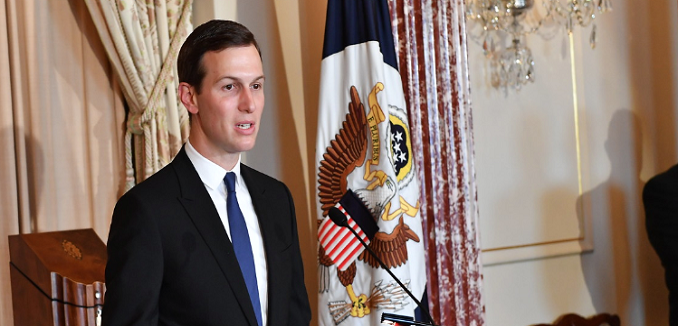White House senior adviser Jared Kushner said on Tuesday that the long-anticipated U.S. peace proposal for solving the Israeli-Palestinian conflict will entail “tough compromises” and will be “different” from previous plans.
Kushner, speaking at a forum of Time magazine, said the plan is an effort to improve the lives of Israelis, Palestinians, and the broader region. “I think that what we do is something that allows for Israel to maintain security, but there will be tough compromises for both,” he observed.
The senior White House official, who has been developing the plan with Middle East envoy Jason Greenblatt, said the “focus is really on the bottom up, which is how do you make the lives of the Palestinian people better, what can you resolve to allow these areas to become more investable.”
He added that they have “built a robust business plan for the whole region.”
When asked if the plan would focus on the two-state solution, Kushner replied: “We’ve taken, I think, an unconventional approach.” He explained that his team had “studied all the different past efforts, and how they failed and why they failed.”
Kushner said in the past, leaders “start[ed] with a process” hoping that it would result in a resolution of the conflict. “What we’ve done is the opposite (…) we started with a solution and then we’ll work on a process to try to get there.”
The White House official told foreign ambassadors in Washington last week that the plan would require an “open mind” from both sides. “We have to give President Trump a chance, I don’t know what will ultimately be presented but I believe they respect what I have suggested,” Israeli Prime Minister Benjamin Netanyahu said.
The newly appointed Prime Minister of the Palestinian Authority, Mohammad Shtayyeh, nonetheless charged that the initiative will be “born dead.” The plan, Kushner said, will be released after Israel has formed a coalition government and after the Muslim holy month of Ramadan ends, which is the first week of June.
[Photo: U.S. Department of State / Flickr]




